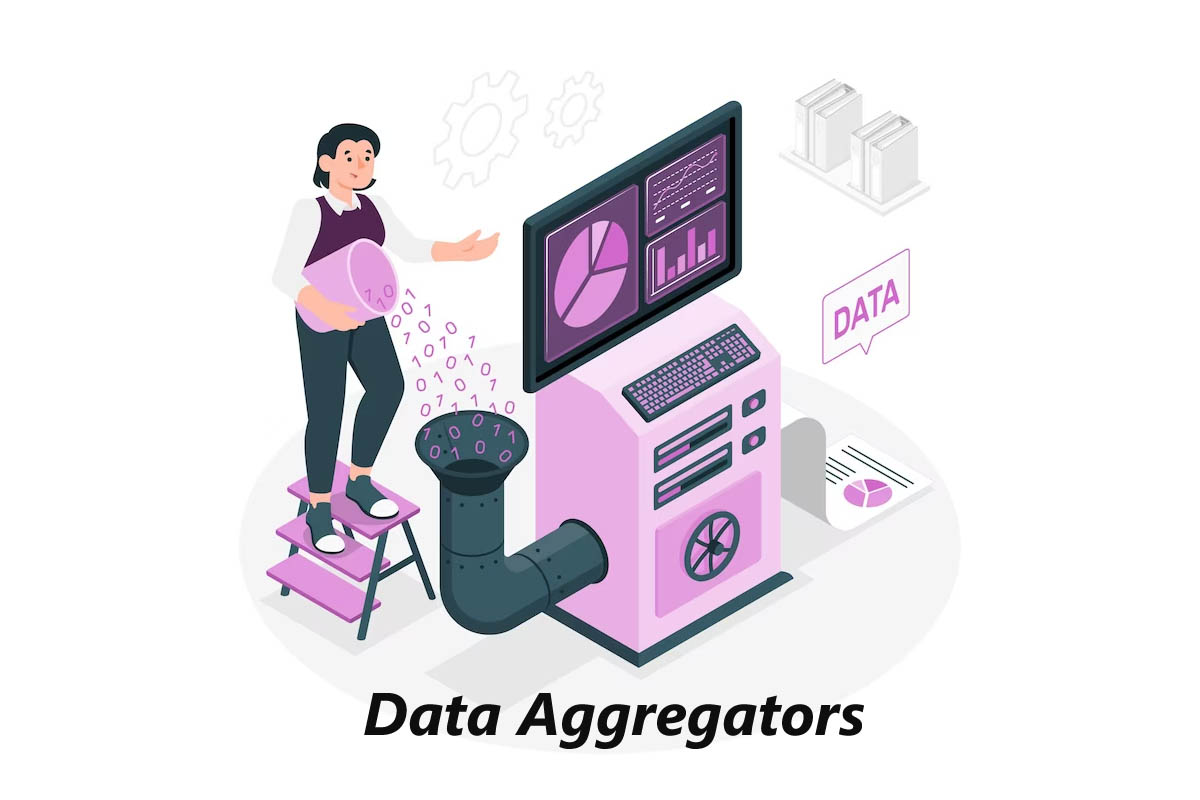Data Aggregators
Data aggregators are organizations that collect data from different sources into a centralized source. They collect data from sources like websites, APIs, and databases and organize everything in a standardized format. Data aggregators are specialized niches or industries that collect information only on those topics.
Data aggregation is necessary because it will provide gathered data in one place that can otherwise be difficult and time-consuming to collect individual data. On the other hand, data aggregators offer valuable services by combining diverse data sets, emptying and normalizing the data. And providing it in a format that is easily accessible and usable for analysis, research, or other purposes.
How Does Data Aggregator Work?
The Source of Collecting Data: Different sources are used to gather information, including websites, social media platforms, sensors, and more. Now the sources are divided into two categories, which are:
- Structured Data Sources: These are the databases with organized fields.
- Unstructured Data Sources: Social media posts and Written documents.
Method of Collecting the Data: Data Aggregators combine the methods like web scraping, partnerships with data providers, data feeds, and APIs and then aggregate the data. They follow certain strategies to collect, clean and transform data into a proper standardized format for easy accessibility for everyone.
Data Cleaning and Arranging: Once they have collected the data, there is correct information. The data is converted into good quality by removing all the duplicates, making it accurate to the niche, and finally converting it into a standardized format. And also verify content against trusted sources.
Value Addition: Data aggregators often provide value-added services on top of the aggregated data. These may include data enrichment, data analytics, data visualization, and data API services, allowing users to access and utilize the aggregated data more effectively.
Types of Data: Data aggregators specialize in aggregating specific types of data, such as financial data, real estate data, consumer data, Business data, marketing data, social media data, or healthcare research data. They focus on gathering comprehensive and relevant information within their specific domain.
Advantages of Data Aggregators
Data aggregators gather information from different sources, including public databases, websites, APIs, and social media platforms. This allows businesses and researchers. And it allows analysts to access full and diverse data sets that would otherwise be challenging and time-consuming to collect individually.
Aggregating data from multiple sources manually can be a time-intensive and resource-draining task. Data aggregators streamline the process by automating data collection, consolidation, and standardization. This saves time and effort, allowing users to focus on analyzing the data and extracting insights.
Aggregators continuously update their data repositories, ensuring users can access the latest information. This is particularly valuable in industries where real-time or near-real-time data is crucial, such as finance, market research, or supply chain management.
Aggregated data is often provided in a standardized format, making integrating into various applications, platforms, or analytical tools easier. This simplifies combining data from multiple sources and enables users to perform complex analyses, generate reports, or develop data-driven applications.
By leveraging aggregated data, businesses and organizations can make more informed decisions. They gain insights into market trends, customer behavior, industry benchmarks, and other relevant factors. This facilitates strategic planning, product development, marketing campaigns, risk assessment, and overall business growth.
Data aggregators provide access to large volumes of data at a fraction of the cost of individually collecting or purchasing data from multiple sources. This makes it reasonable for businesses of various sizes and research organizations to access valuable information and perform data-driven analysis.
Reputable data aggregators adhere to privacy regulations and standards, ensuring that the data they collect is obtained and used legally and ethically. They implement measures to protect data privacy and maintain implied consent and approvals from data sources.
Conclusion
Finally, data aggregators offer significant advantages by simplifying data collection, providing comprehensive and standardized information, and allowing businesses and researchers to leverage data efficiently for decision-making, analysis, and innovation.

